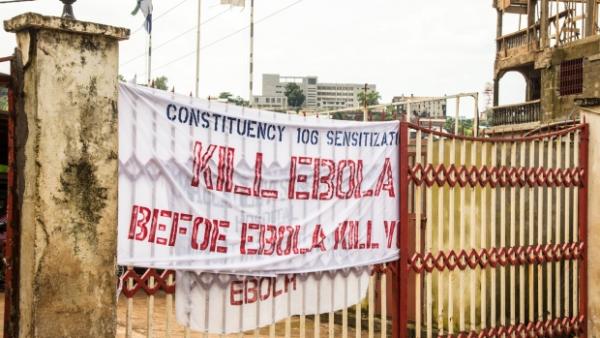THE ASSOCIATED PRESS Nov. 22, 2014
FREETOWN, Sierra Leone -- The first wave of volunteers from Britain's National Health Service arrived in Sierra Leone Saturday amid what the World Health Organization has described as an "intense" surge in cases.

A sign reading 'Kill Ebola Before Ebola Kill You', on a gate is mounted as part of the country's Ebola awareness campaign in the city of Freetown, Sierra Leone, Sept. 14, 2014. (AP / Michael Duff, File)
More than 30 NHS staffers, including general practitioners and nurses, were expected to stay in Freetown, the capital, for one week of training before moving to treatment centres across the country, Britain's Department for International Development said in a statement.
They join nearly 1,000 British soldiers, scientists and aid workers already in the country participating in the Ebola fight, International Development Secretary Justine Greening said.
Recent Comments